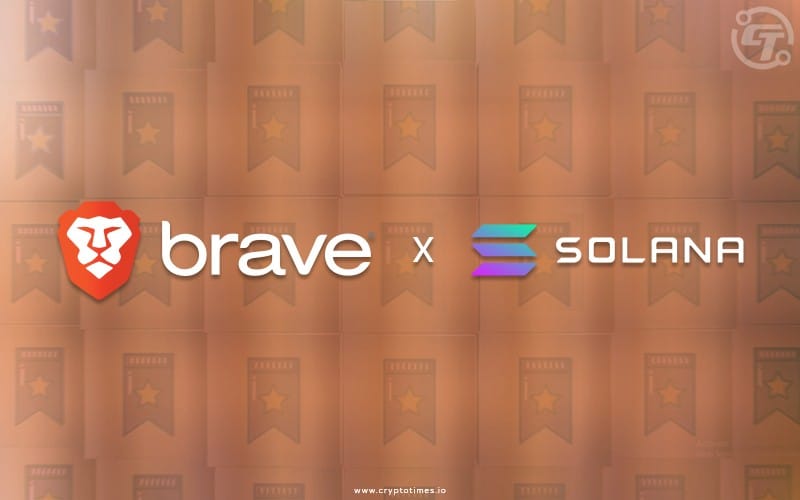In Brief:
- Brave has established a partnership with Solana.
- The partnership would benefit Brave’s 42 million users.
- Solana’s ability to scale transactions would enable easier and faster adoption of DeFi.
Brave, a privacy-focused browser, established a partnership with Solana [SOL] at Breakpoint, a four-day conference in Lisbon, Portugal. Brendan Eich, CEO and co-founder of Brave, and Anatoly Yakovenko, CEO and founder of Solana Labs, announced their goal to improve wallet functionalities across all browser versions for a better user experience.
Brave’s 42 million active users and 1.3 million creators will benefit from the integration, which will make it the default browser for all cross-chain activities and decentralised apps [DApps] support on the layer 1 blockchain. Eich stated specific hopes that the partnership will help to improve accessibility and enable a larger number of users to use their apps and other services.
In a similar manner, Yakovenko of Solana stated,“for billions of people, the mobile web will be their gateway to Web3. Deep integration with browsers is key to helping DApps build the best web experiences. Brave’s announcement of Solana wallet support across all versions of their browsers is an important step to onboard the next billion users to Solana.”
The newest announcement is important as SOL broke into the top four cryptocurrencies by market size two days ago by flipping Tether [USDT], the world’s largest stablecoin, and reaching a new all-time high near $260.
The statement also notes some of the alliance’s notable achievements, including the introduction of the Themis protocol, a significant advancement in BAT 2.0 infrastructure established by the Solana Network’s browser. Apart from that, the joint venture will help the SOL DEX aggregator with frictionless swaps, NFT support, token dispatching, and account creation.
The Solana blockchain’s ability to scale transactions, according to the blog post, would not only assist enable easier and faster adoption of decentralised finance [DeFi] and Web3 but will also save consumers money when compared to Ethereum. Brave recently replaced Google with its own curated search engine, Brave Search, just a few days ago. The company’s tactic of making its own search engine the default in browsers had been a crucial point of antitrust investigation.
Quite a similar situation, Tulip, a Solana-based yield aggregator, raised $5 million in a new round of funding in October.






